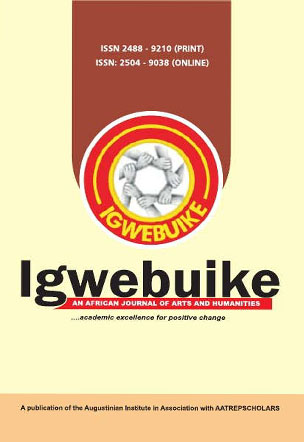
Vol. 9 No. 4, 2023
ABSTRACT
Unethical leadership has been inimical to Nigeria's governance and national development. The purpose of this study is to examine unethical leadership epitomized by lack of integrity and accountability in Nigeria’s public service. It is poised to answer three main research questions: (i) to what extent is Nigeria’s political leadership perceived to exhibit accountability as instruments of governance? (ii), to what extent do government officials discharge their obligations with high level of integrity? To answer these questions, extant literature on unethical leadership, news articles and other secondary sources were sourced from the internet and reviewed. The research problem was seen from the theoretical framework of transformational leadership theory. The merits of this theory is its emphasis on leaders inspiring followers to transcend their parochial interests to achieve higher goals like national development. It was revealed that successive leaders have failed to adopt accountability and integrity as instruments of governance. Additionally, they fail to engage citizens in policy formulations. As a consequence, followers rarely trust them and so, show low levels of support for government. The study concludes that good governance is only achievable when the two ethical issues of accountability and integrity are vigorously applied in Nigeria’s political leadership.
